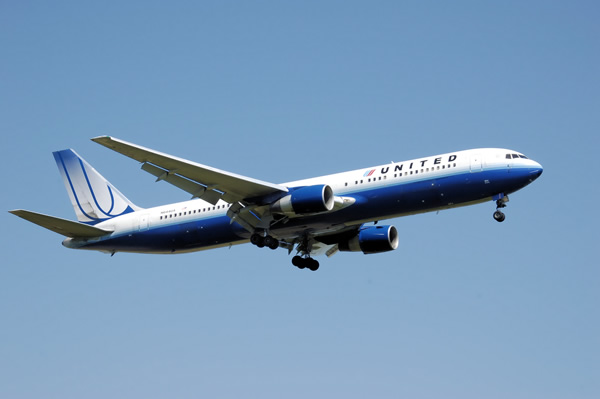On Thursday, a United Airlines Boeing 787-8 aircraft, en route from Lagos, Nigeria, to Washington Dulles International Airport, experienced a technical malfunction, forcing the pilots to declare an emergency and return to Lagos. The aircraft, carrying 245 passengers, eight flight attendants, and three pilots, transmitted the emergency transponder code 7700, signaling distress to air traffic control, and maintained this code until safely landing back in Lagos. Videos and images captured by passengers onboard depicted a chaotic scene with food and luggage strewn across the cabin, indicative of the turbulent conditions experienced during the flight. While the precise cause of the incident remains under investigation by the Nigerian Safety Investigation Bureau, initial passenger accounts pointed towards a potential engine-related issue.
The return to Lagos initiated a swift emergency response. The Federal Airports Authority of Nigeria (FAAN) confirmed that their Aerodrome Rescue and Fire Fighting Services, Aviation Medical, and Aviation Security teams were on high alert and positioned at the gate within four minutes of the pilot’s distress call at 1:20 am. The aircraft landed safely and the doors were opened at 3:37 am, allowing passengers and crew to disembark. A total of 256 individuals were on board, including 245 passengers and 11 crew members.
Of those onboard, FAAN reported that six individuals sustained serious injuries (four passengers and two crew members) while 32 others (27 passengers and five crew members) suffered minor injuries. FAAN’s medical teams provided immediate on-site medical attention to the injured. Those with minor injuries received first aid and were promptly discharged. Passengers with more serious injuries were stabilized and transported to local hospitals, including the MMA Clinic, the Headquarters Clinic, and Duchess Hospital in Ikeja. Uninjured passengers were provided accommodations at nearby hotels.
The Nigerian Civil Aviation Authority (NCAA) confirmed that the passengers were accommodated in hotels, in line with regulatory protocols. United Airlines also released a statement acknowledging the “technical issue” that led to the return to Lagos. They confirmed that first responders attended to the aircraft upon landing to address the reported passenger and crew injuries. While initial reports suggested engine trouble, the official cause of the incident is yet to be determined pending a thorough investigation by the appropriate authorities. FAAN assured the public of their commitment to safety and pledged to provide further updates as the investigation progressed.
The incident underscores the critical role of robust safety protocols and swift emergency response in mitigating the impact of unforeseen technical malfunctions during flight. The coordinated efforts of FAAN’s rescue teams, coupled with the adherence to NCAA regulations regarding passenger care, ensured the safe handling of the situation and the well-being of those affected. The incident will undoubtedly undergo rigorous investigation to determine the root cause of the technical issue and identify any potential areas for improvement in aviation safety procedures.
This incident highlights the importance of continued investment in aircraft maintenance and the ongoing training of flight crews to manage in-flight emergencies effectively. The ability of the pilots to safely return the aircraft to Lagos and the prompt response of emergency services played a crucial role in minimizing the severity of the situation. The investigation into this incident will likely contribute valuable insights into enhancing aviation safety and preventing similar occurrences in the future. The focus will remain on ensuring the continued safety and well-being of passengers and crew members throughout the aviation industry.


